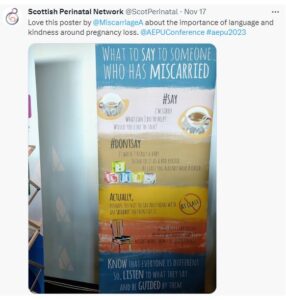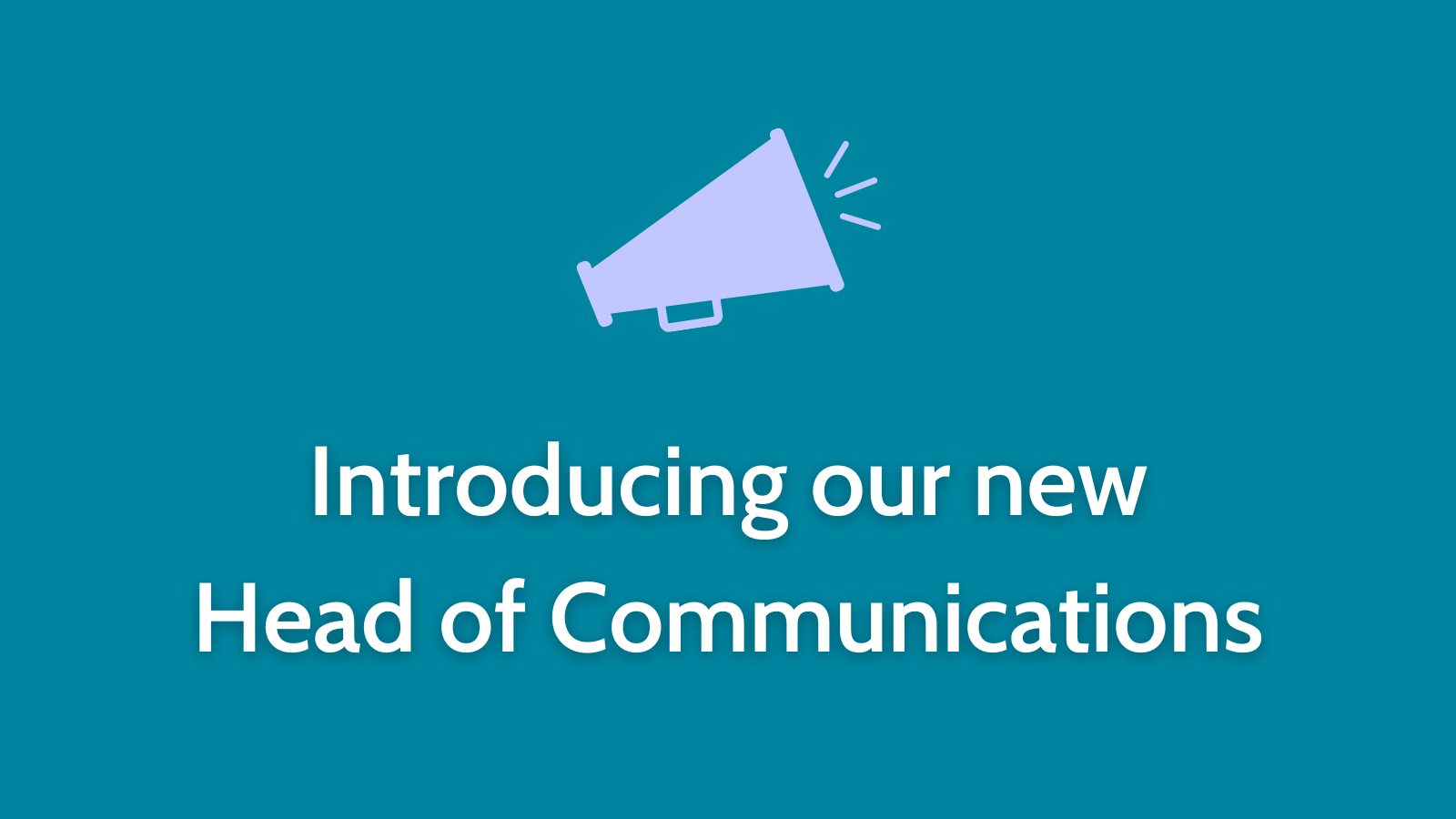Caring for patients with pregnancy loss
22nd November 2023
This time last week, three of the M.A. team were setting off for the annual conference of the Association of Early Pregnancy Units.
With close to 400 delegates, speakers and contributors, it was a packed and powerful event. There were lectures, posters, discussions and workshops on research and on clinical care, on treatment and on guidelines. Some were very scientific, some very practical (you can see the full programme here), all creating interest, discussion and debate.
But what shone through the whole event – including the breaks – was a clear passion for getting it right for people affected by pre-24 week pregnancy loss: a passion for increasing knowledge, skills and processes, and an absolute commitment to thoughtful and compassionate care too.
Some snippets for you:
Delivering unexpected or difficult news
Dr Judith Johnson, clinical psychologist and Associate Professor at the University of Leeds, talked about how to deliver unexpected news in early pregnancy care – something that we know is hugely important to someone having a scan or other tests. Yet other than Judith’s guidelines and pilot training, sonographers have no standard training on this.* She hopes to change this and we’re delighted to be involved with her work.
* You can hear Judith talking about this on BBC Radio 4’s Woman’s Hour on 21 November: https://www.bbc.co.uk/sounds/play/m001sm80, 31.26 minutes into the programme.
Recurrent miscarriage
Dr Soterios Saravelos, Obstetrician and Gynaecologist at Imperial College MHS Trust London, talked through the Royal College of Obstetricians and Gynaecologists’ new clinical guidelines on recurrent miscarriage and what it means for people with three or more losses. We’ve talked about this here too.
Difficult conversations
Ruth, the M.A.’s Director, and Maeve Tuomey, Senior Sister for Early Pregnancy and Emergency Gynaecology at Imperial College NHS Trust led this breakfast workshop for staff. We ran a similar workshop last year, focusing on conversations with patients about potentially very upsetting things: the results of a scan or blood test, options for managing a missed miscarriage, or information about what happens to their pregnancy or baby’s remains after a loss.
This year, 45 delegates joined us at 7.30 a.m., sustained by coffee and pastries as we focused on their own needs for support in having difficult, sad and sometimes heartbreaking conversations with patient after patient. They talked about feeling bad for causing upset or increasing anxiety or distress; about worrying about saying the wrong thing; and about how caring for people with pregnancy loss can trigger painful memories of their own loss/es. It was truly moving, and we hope it helps both them and the patients they care for.
Promoting the Miscarriage Association
In between the sessions, M.A. helpline support workers Helen and Juanita staffed our stand, generally packed with people coming to look at our leaflets and just to chat – happily, many of them saying “We always use your leaflets.” 
Other comments they remember:
Why would we need to re-invent the wheel when your leaflets are already so good.
Thank you for all the good work that you do.
Thank you for the support you give.
It’s nice for the patients to have something to take away, because when they’re upset, they can’t always take things in.
It’s nice that you have something for men too because they’re not always thought of.
All in all, another truly positive conference run by and for health professionals who really do care for and about people experiencing pregnancy loss.

